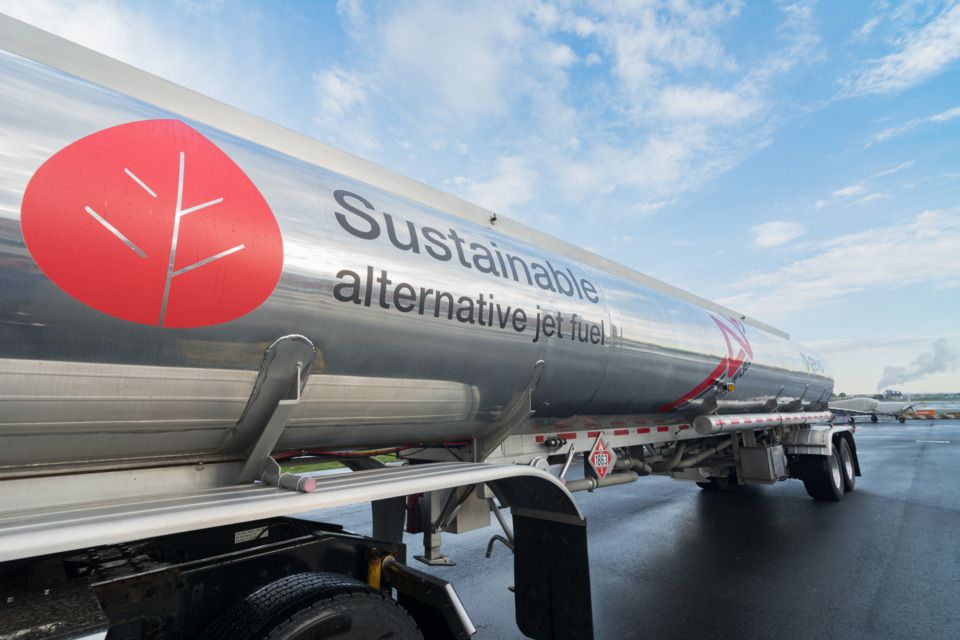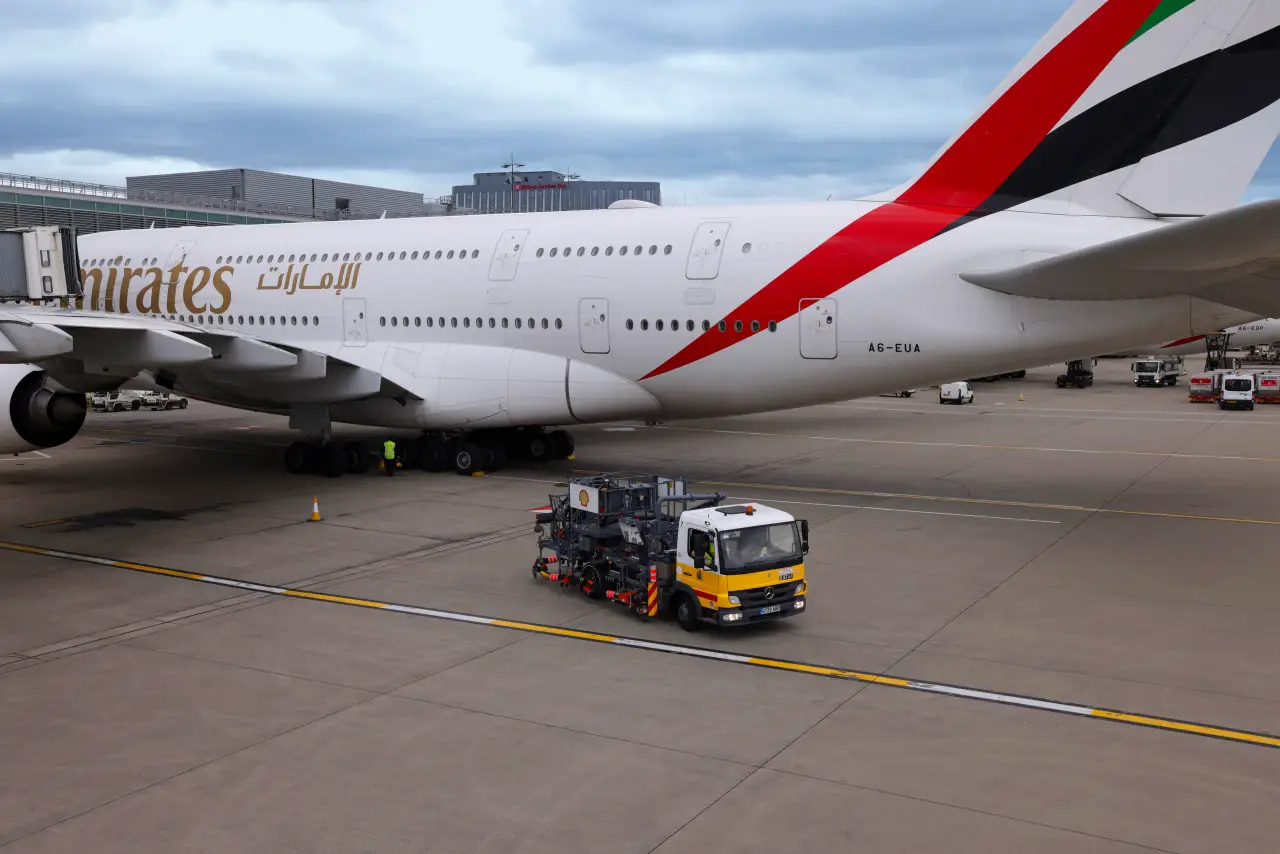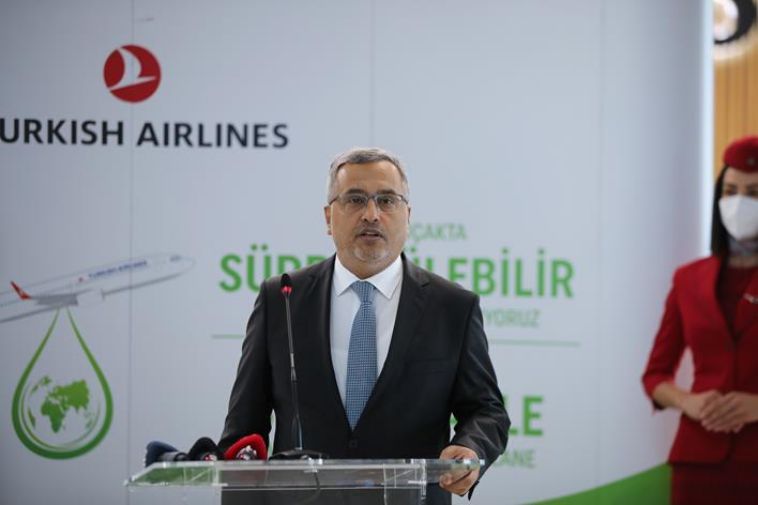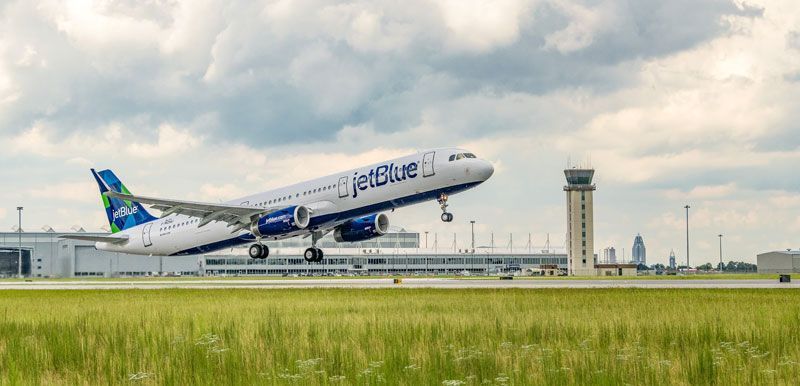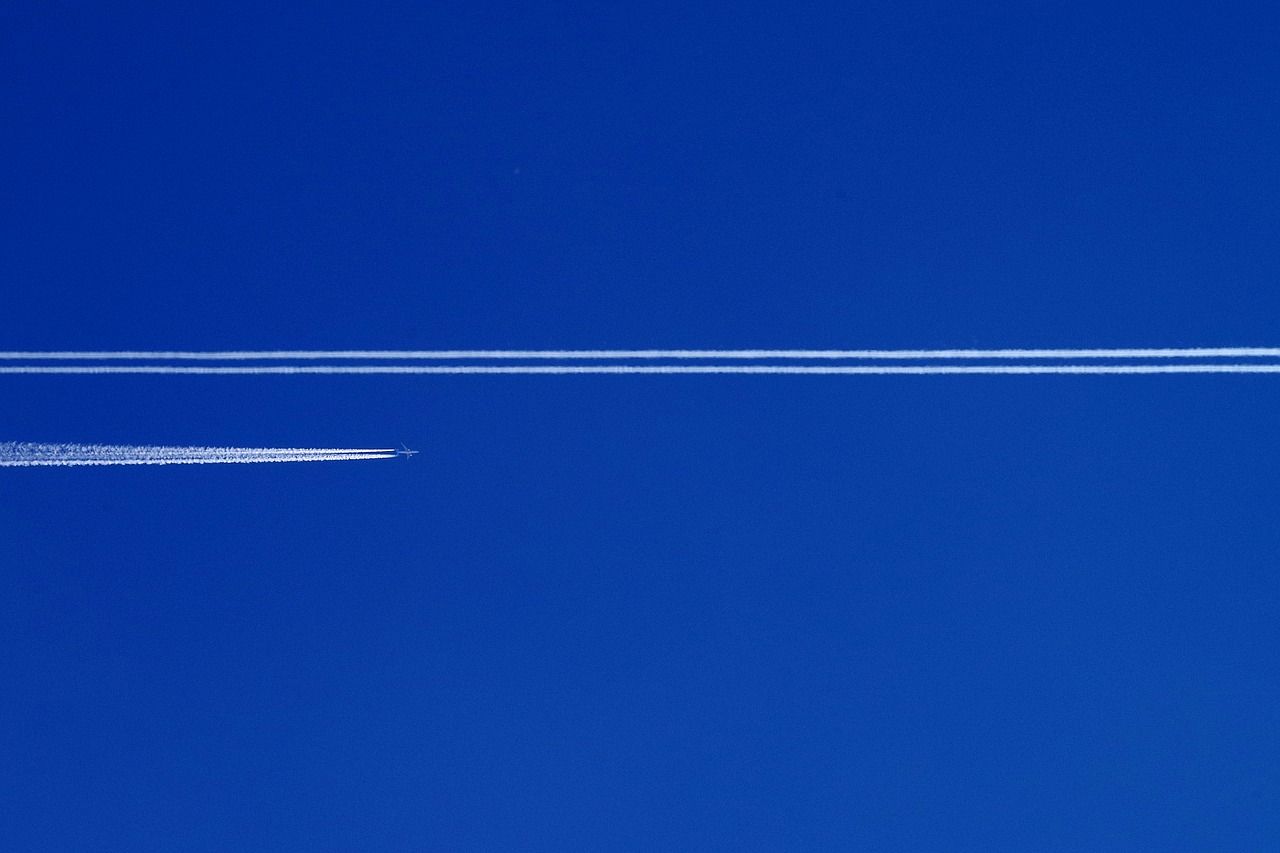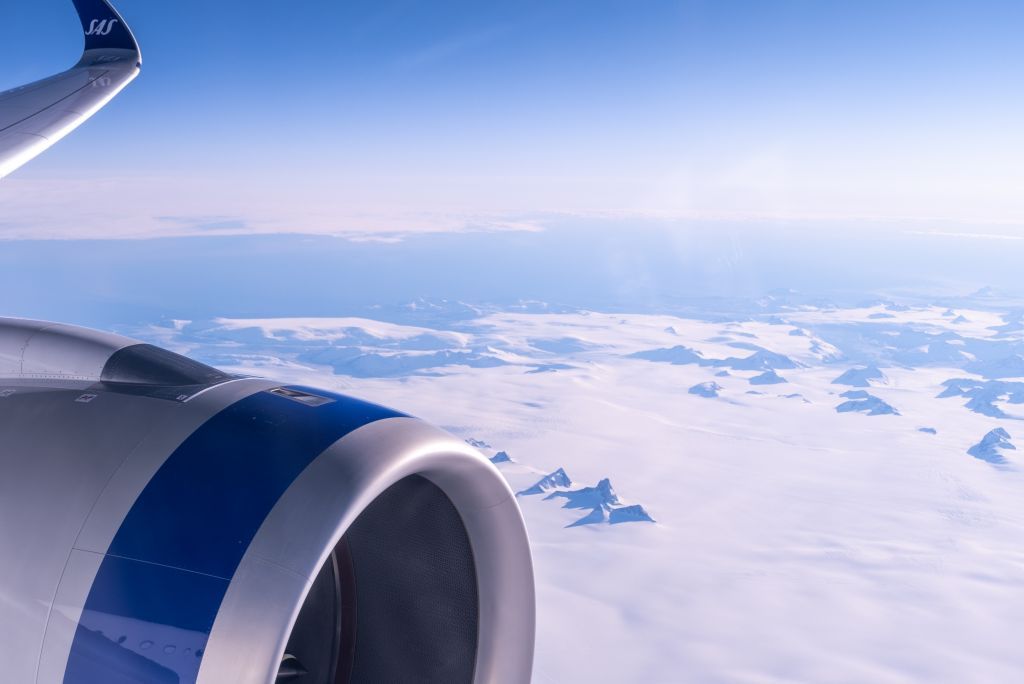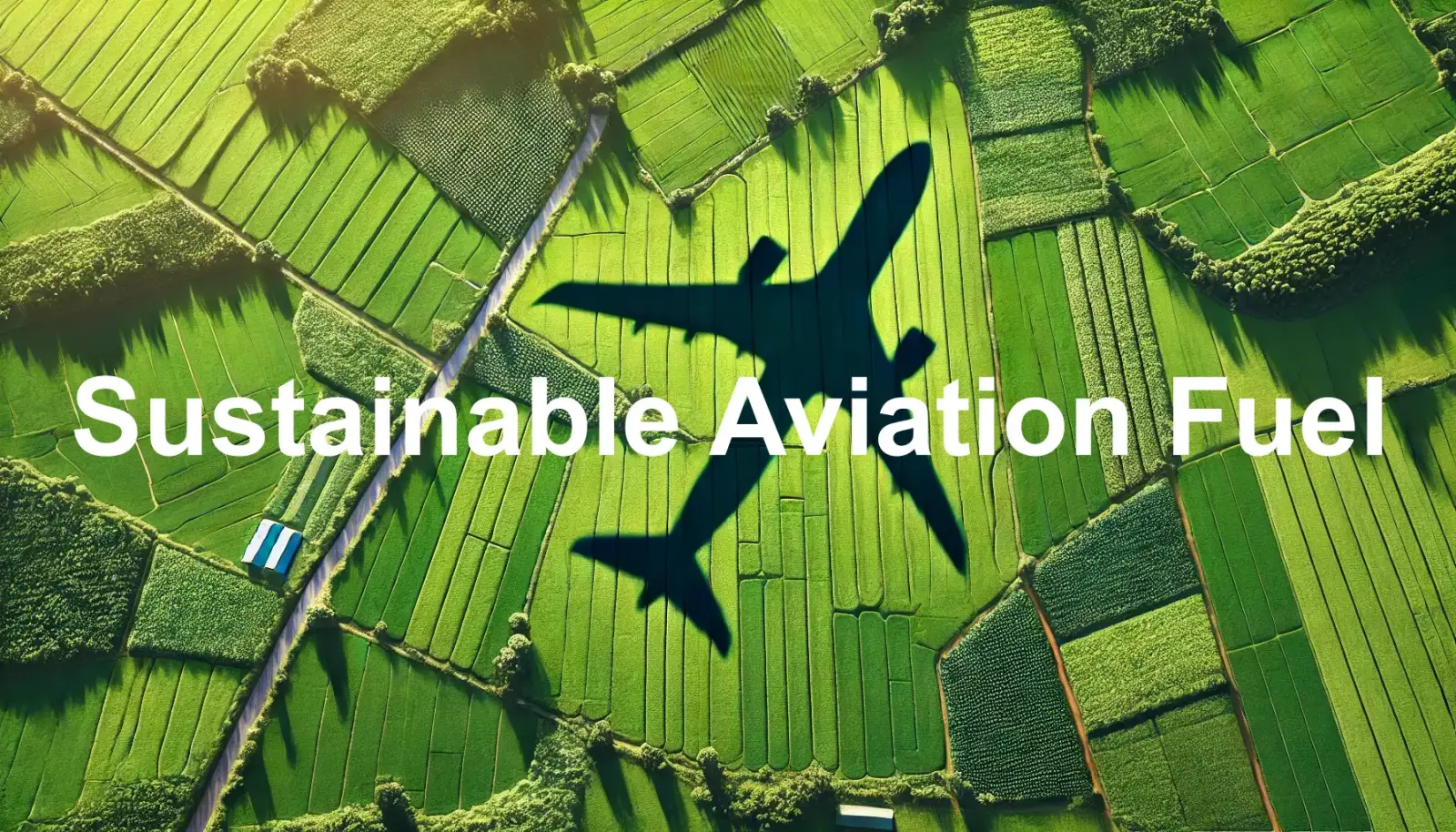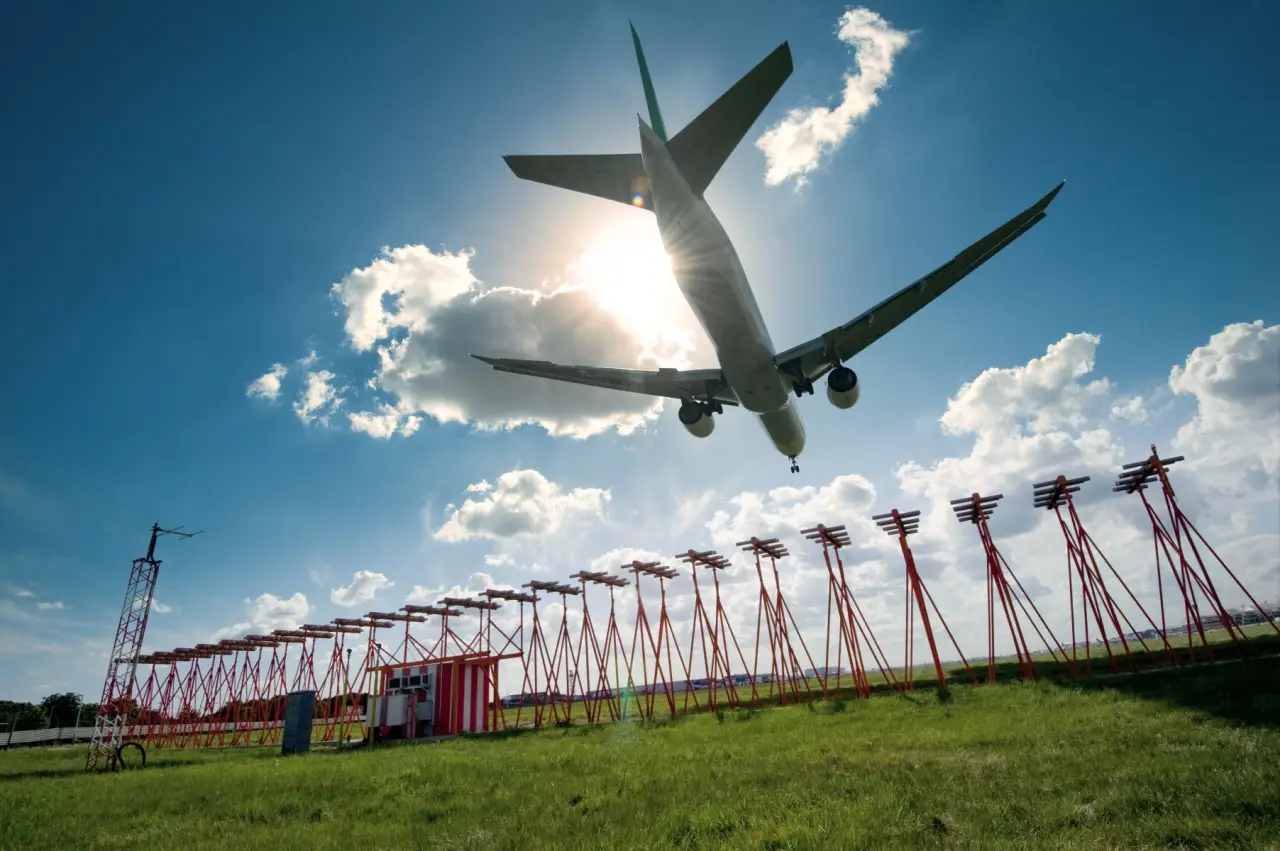The global aviation industry is witnessing a remarkable shift towards sustainability with the increasing adoption of Sustainable Aviation Fuel (SAF).
Major airlines and aviation companies across the globe, from Emirates to Jet2.com, are investing heavily in SAF initiatives. These efforts aim to reduce carbon emissions and promote eco-friendly aviation practices. As new agreements and projects emerge in Europe, Australia, the US, and beyond, the commitment to a greener future in air travel is becoming more evident.
Emirates has taken a significant step toward sustainability by receiving a substantial delivery of sustainable aviation fuel (SAF) from Shell Aviation at London Heathrow Airport. Over 3,000 metric tonnes of neat SAF, blended with conventional jet fuel, will be supplied to the airport’s fueling infrastructure until the end of summer 2024. This marks the first time Emirates will use SAF at Heathrow, representing the largest volume of SAF it has purchased to date. Emirates is also participating in London Heathrow’s SAF Incentive Programme, ensuring SAF’s affordability and accessibility. In addition to that Emirates has also activated its fuel agreement with Neste at Amsterdam Schiphol Airport, with over 2 million gallons of blended SAF to be supplied throughout 2024.
Jet2.com plans to use SAF on flights from Bristol Airport in 2024. The airline has purchased over 300 tonnes of SAF from Q8Aviation, which will be used to add a 1% SAF blend to several departing flights from Bristol this year.
In Europe, Sasol and Topsoe have launched their joint venture, Zaffra, headquartered in Amsterdam, to develop and deliver SAF. Wizz Air has announced a £5 million investment in biofuel company Firefly. Ryanair, following its purchase of 500 tonnes of SAF from OMV last October, plans to take an additional 500 tonnes in 2024 and has also purchased 1,000 tonnes of SAF from Shell for use at its Stansted Airport base.
AEGEAN expanded its SAF uplift program at Stockholm Arlanda and London Heathrow through an agreement with Shell. Air France announced it would match its customers’ voluntary contributions to the purchase of SAF during the Paris 2024 Olympic and Paralympic Games. Neste launched its Neste Impact solution for businesses to reduce aviation emissions with SAF. Virgin Atlantic shared results from Flight100, the first transatlantic flight on 100% SAF, showing a 64% reduction in CO2 emissions.
Turkish Airlines is actively using Sustainable Aviation Fuel (SAF) on routes to Paris, 0slo, Gothenburg, Copenhagen, Brussels, Stuttgart, Stockholm, Lyon, Marseille, Strasbourg, Bordeaux and Toulouse. The airline is increasing SAF usage with additional destinations and frequencies as well as expanding its fleet with new generation aircraft. Its fleet is expected to comprise 75% new generation aircraft by 2033, which emit 15-20% less carbon compared to old generation aircraft.
In Australia, LanzaJet & Jet Zero Australia signed an agreement to advance Australia’s first ethanol-to-SAF plant. Project Ulysses aims to produce 102 million liters of SAF and 11 million liters of renewable diesel annually, supported by Qantas, Airbus, and Idemitsu. Jet Zero Australia and Trovio partnered to establish an Australian framework for a ‘Book and Claim’ registry for SAF and renewable diesel. Air New Zealand is seeking innovators in a global search for SAF supply partners and has signed its largest SAF deal, securing nine million liters from Neste.
Cathay set a new 2030 carbon intensity target, aiming to improve its carbon intensity by 12% from 2019 levels. TotalEnergies and SINOPEC agreed to jointly develop a SAF production unit in China with a capacity of 230,000 tonnes annually. Topsoe signed an agreement with Guangxi Hongkun Biomass to produce SAF at a plant in Guangxi, China. Singapore Airlines Group ordered 1,000 tonnes of SAF from Neste for use at Changi Airport. S-Oil in South Korea will produce SAF for international aviation after acquiring three green certifications.
In Canada, WestJet acquired Shell Aviation’s first SAF available for purchase in the country. ABB and Cap Clean Energy agreed to collaborate on SAF production sites in Manitoba, Saskatchewan, and Alberta, incorporating carbon capture and storage (CCS) technology.
In the US, Southwest Airlines acquired SAFFiRE Renewables, marking its transition to sole owner. Aemetis received air permits for its planned SAF and renewable diesel plant in California, designed to produce up to 90 million gallons per year. Boston Consulting Group signed an agreement for SAF certificates with World Energy. Avfuel Corporation and Neste extended their SAF supply partnership until December 2027. Boeing made its largest purchase of blended SAF, acquiring 9.4 million gallons for its 2024 operations, 60% more than in 2023. The SAF Coalition was announced, comprising 40 companies and organizations dedicated to SAF development.
JetBlue and Shell Aviation announced bringing an additional supply of sustainable aviation fuel (SAF) to Los Angeles International Airport (LAX).
Chile aims to start producing SAF by 2030 and use the fuel for half of its aviation needs by 2050 through the “Vuelo Limpio” project.

